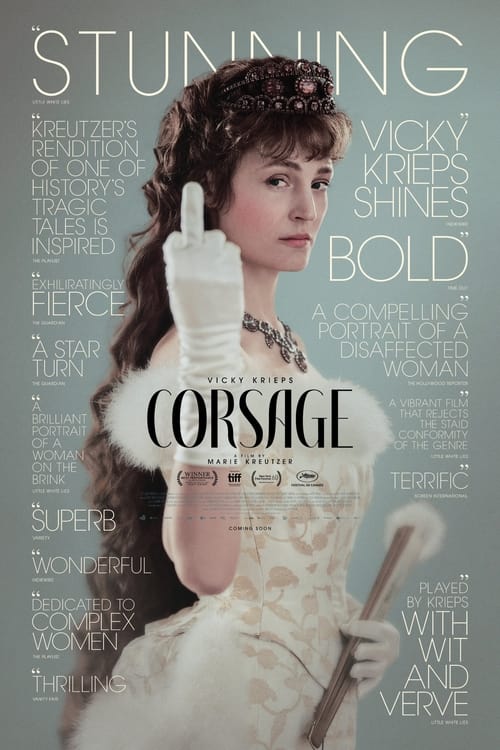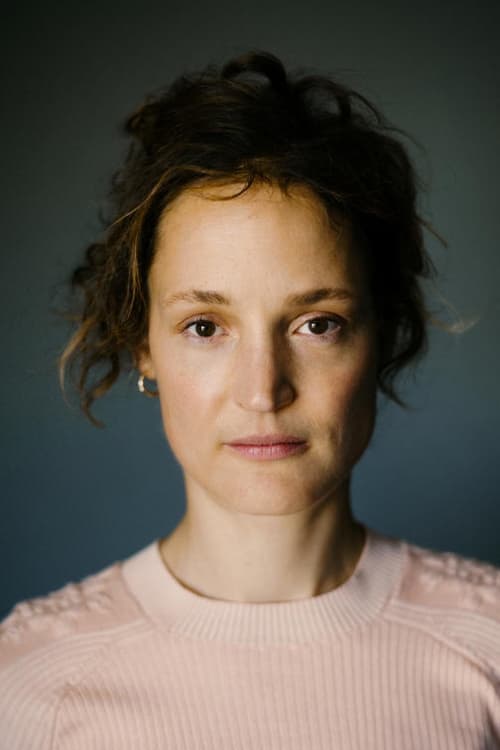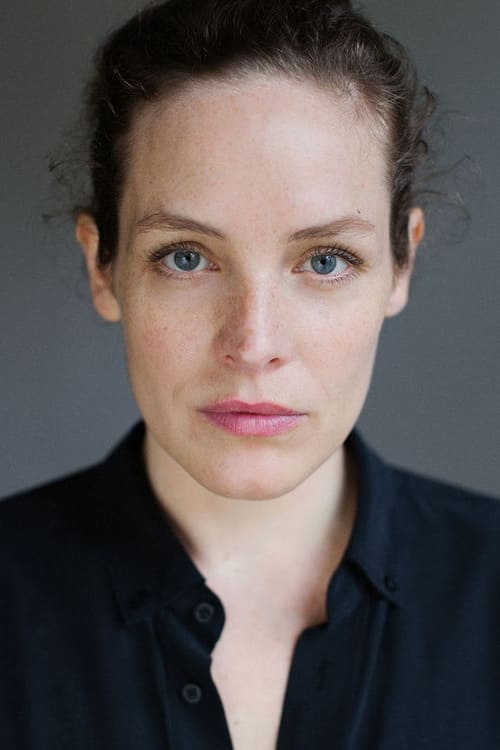Corsage
Corsage
Genres Biography ,Drama ,History
Directors Marie Kreutzer
Writer Marie Kreutzer
Country Austria
Votes 10929
Rating 6.5
IMDBID tt11992694
Runtime 114
Languages German
Release 10 Sep, 2023
Cast Vicky Krieps ,Florian Teichtmeister ,Katharina Lorenz ,Jeanne Werner ,Alma Hasun
Empress Elizabeth of Austria is idolized for her beauty and renowned for inspiring fashion trends. But in 1877, 'Sissi' celebrates her 40th birthday and must fight to maintain her public image by lacing her corset tighter and tighter. While Elizabeth's role has been reduced against her wishes to purely performative, her hunger for knowledge and zest for life makes her more and more restless in Vienna. She travels to England and Bavaria, visiting former lovers and old friends, seeking the excitement and purpose of her youth. With a future of strictly ceremonial duties laid out in front of her, Elizabeth rebels against the hyperbolised image of herself and comes up with a plan to protect her legacy.







CinemaSerf
The danger with fictional accounts of the lives of real people, is that it is frequently all to easy to poke holes in the plot. This is one such film that takes just a little too much creative licence with the the life of the Empress Elisabeth (Vicky Krieps). Wife of the famed Austro-Hungarian Emperor Franz Josef (Florian Teichtmeister), this film follows a supposed year in the life of this curious historical figure who, having suffered a family tragedy and enduring a rather estranged emotional relationship with her husband, spends much of her life obsessing with her weight and seeking solitude. Krieps is on good form, she creates a persona for her character that is effective to watch, but the mixture of modern and period scenarios (old buildings with modern fire doors; a cross-channel ferry!) seems anachronistic - to what end? The buildings in which she and her family inhabit have none of the opulence and grandeur of the Hofburg or Prague Castle, indeed the British home of her horse-master "Bay" (Colin Morgan) looks little better that a ramshackle ruin - and this is incongruous with the way we know she lived her life. Reclusive, yes, but still in splendour. It is also a particularly unremarkable year in her life to have chosen to illustrate. Not the previous ones where turbulence within the Imperial family reigned, not the famed "Mayerling" period which was ultimately held responsible for the final decline of this lady. There is also an highly speculative portrayal of her relationship with Bavaria's equally famous King Ludwig II (Manuel Rubey) that adds little. The denouement itself is presented here in a rather too bizarre fashion that disappointingly topped off this interesting but frankly flat and pace-less drama that offers us a glimpse of this intriguing woman, but little more of substance. Pity.
posts by : CinemaSerf